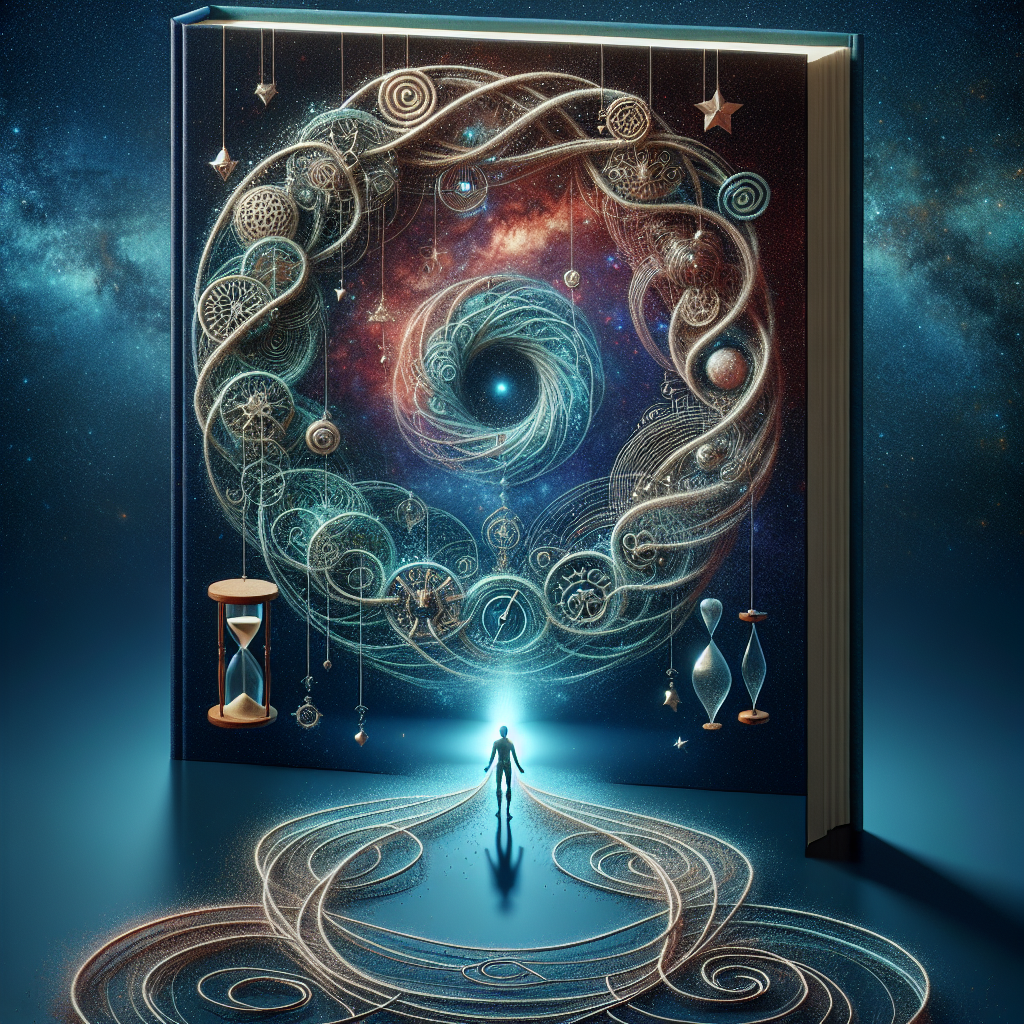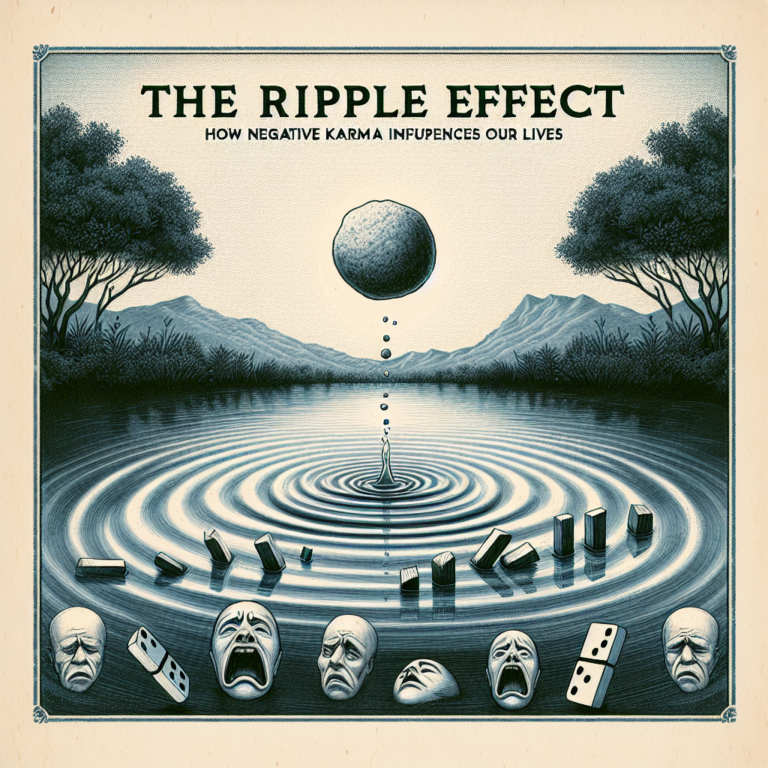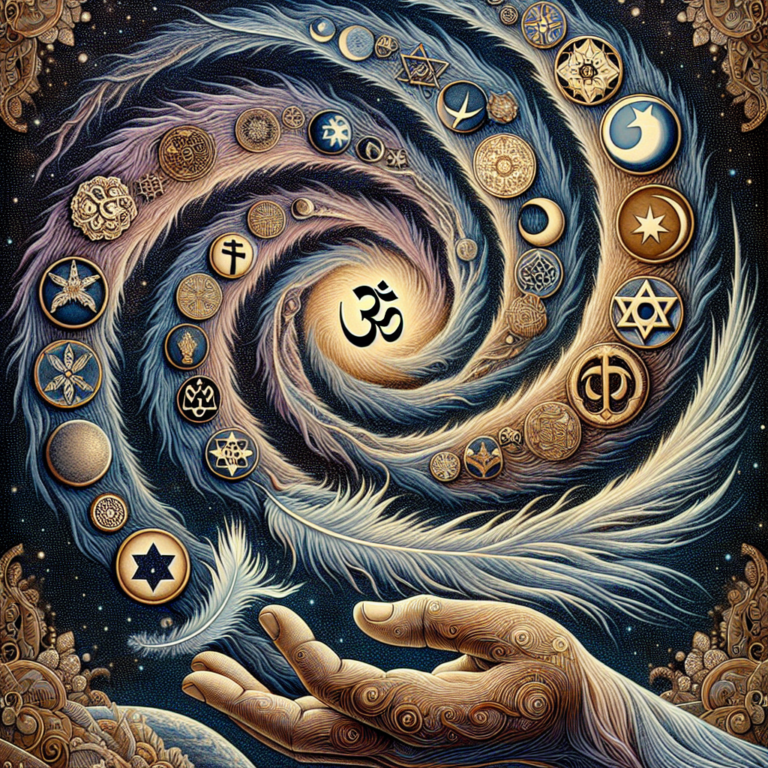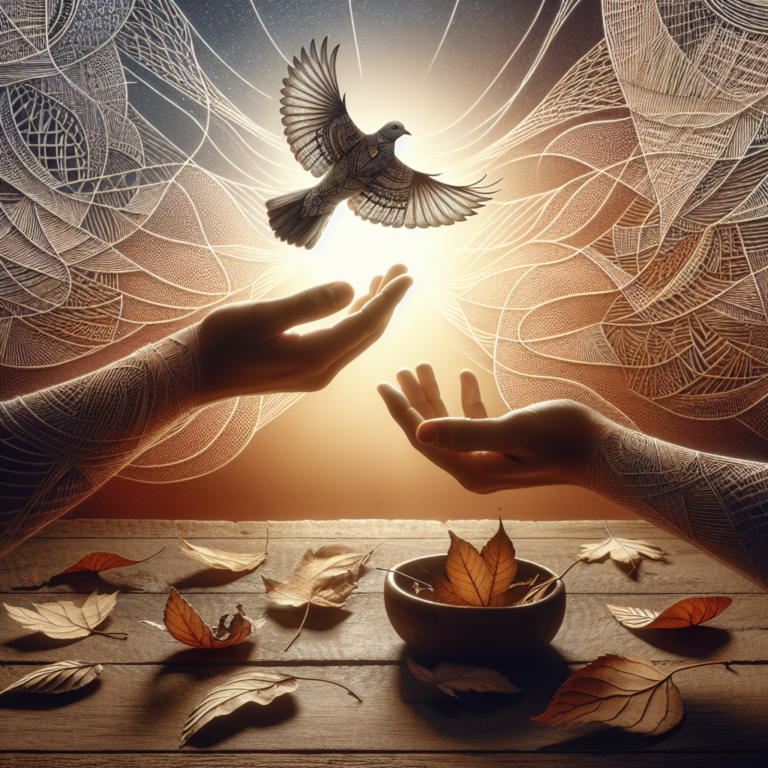In the tapestry of human existence, the threads of karma and destiny are intricately intertwined, forming a complex web that shapes our lives. At its essence, karma is the law of moral causation, suggesting that every action has consequence—good or bad—while destiny is often viewed as the unfolding of predetermined events in our lives. But how do these concepts interact? And more importantly, how do our individual choices play a crucial role in shaping our future?
Understanding Karma
Karma, derived from the Sanskrit word for "action," is a foundational concept in various Eastern philosophies, including Hinduism and Buddhism. It posits that our actions—thoughts, words, and deeds—create ripples in the fabric of the universe, generating outcomes that will eventually return to us. This is often summarized in the popular phrase, “what goes around, comes around.”
In a practical sense, karma can be seen in everyday life. Acts of kindness often inspire more kindness; on the other hand, selfish or harmful actions may yield negative repercussions. However, karma is not a straightforward ledger that simply balances good deeds against bad ones. Instead, it is a nuanced interplay of intentions, actions, and consequences. It emphasizes the moral quality of our choices and how they resonate with the world around us.
The Nature of Destiny
Destiny, contrastingly, evokes a notion of fate—an inexorable force that governs the course of our lives. It is often associated with the idea that certain events are predetermined, regardless of our actions. Many people believe that destiny can be influenced, while others view it as fixed. This duality raises questions about free will: to what extent do we control our futures?
The ancient Greeks personified destiny through the three Fates, who spun, measured, and cut a person’s thread of life. This imagery illustrates the tension between cosmic order and individual agency. While destiny may set certain events in motion, it does not negate the influence of personal choice. The modern interpretation often sees destiny as a path filled with opportunities shaped by our decisions.
The Interplay of Choices, Karma, and Destiny
At the intersection of karma and destiny lies our capacity for choice. While destiny may define a certain trajectory in our lives, karma suggests that our individual choices can influence that trajectory significantly. By making conscious choices aligned with our values and aspirations, we have the power to alter the outcomes of our lives.
For instance, consider a person facing a crucial career decision. They may feel destined to pursue a specific profession, but their choice—whether to follow their passion or stick to expectations—can dramatically alter their paths. A courageous choice to pursue a dream job can lead to fulfillment and success, while reluctance to deviate from a predefined path may result in dissatisfaction and regret. Thus, while destiny may draw us in a certain direction, our choices pave the way forward.
The Ripple Effect of Our Choices
The choices we make can set off a chain reaction that shapes not only our lives but also the lives of those around us. This phenomenon can be illustrated through the concept of the “butterfly effect,” found in chaos theory, which suggests that small changes in initial conditions can lead to vastly different outcomes.
For example, someone might decide to volunteer at a local charity. This seemingly small choice not only benefits the charity but could also lead to meeting new people, discovering new passions, and inadvertently altering life goals. Each positive action unfolds countless possibilities, reinforcing the idea that every choice we make carries the potential to redirect our destiny.
The Role of Intention in Shaping Karma
The interplay between karma and destiny is most potent when we infuse our choices with intention. Intention adds depth to our actions, determining their moral and ethical implications. By acting with mindfulness, we cultivate positive karma that impacts our life’s trajectory.
When making choices, it’s crucial to reflect on our motivations. Are we acting out of love, compassion, and altruism, or are we driven by fear, greed, or desperation? The clearer our intentions, the stronger the karma we create, hence influencing our future destinies in favorable ways.
Embracing Responsibility for Our Choices
Understanding the synergy between karma, destiny, and our choices invites us to embrace responsibility. We hold the power to shape our future through our actions. Accepting this responsibility can be liberating, empowering individuals to take charge of their lives.
It is also essential to recognize that not all consequences are immediate or visible. Some may take time to manifest, creating a complex feedback loop through which we learn and grow. By remaining open to the lessons of our experiences, we can refine our choices and continue to positively influence both our karma and destiny.
Conclusion
Unraveling the intricate relationship between karma and destiny reveals profound insights into the power of our choices. While we may face predestined circumstances, our actions and intentions carve out unique paths and possibilities. Embracing the principles of karma allows us to understand the impact of our choices, fostering a sense of agency in our lives.
In this cosmic dance of karma and destiny, we are the choreographers of our fate. By making conscious and intentional choices aligned with our values, we can shape a future that resonates with fulfillment, connection, and purpose.
FAQs
Q1: Can karma change my destiny?
A1: Yes, karma can influence your destiny. While destiny may set certain circumstances or paths, your choices and actions (karma) can alter the course of your life. Positive actions can lead to more favorable outcomes.
Q2: Is karma always immediate?
A2: Not necessarily. The consequences of our actions may not be immediate or obvious. Sometimes, the effects of karma take time to manifest, emphasizing the importance of patience and ongoing self-reflection.
Q3: Do I have to believe in reincarnation for karma to apply?
A3: While karma is often associated with reincarnation in Eastern philosophies, the principle of cause and effect can apply within a single lifetime. Your actions influence your current life, regardless of beliefs about rebirth.
Q4: How can I improve my karma?
A4: You can improve your karma by engaging in positive actions, practicing compassion, being mindful of your intentions, and taking responsibility for your choices. Acts of kindness, selflessness, and respect for others contribute to positive karma.
Q5: What if I feel my destiny is fixed?
A5: While certain circumstances may feel predetermined, you still hold the power to make choices that influence your life’s direction. Reflecting on your values and passions can help you identify areas where you can assert your agency.
Sure! What kind of prompt are you looking for? It could be for writing, brainstorming ideas, creative projects, or something else entirely. Let me know how I can assist you!, #Unraveling #Karma #Destiny #Choices #Shape #Future, #Unraveling #Karma #Destiny #Choices #Shape #Future, 1735090993, unraveling-karma-and-destiny-how-our-choices-shape-our-future





